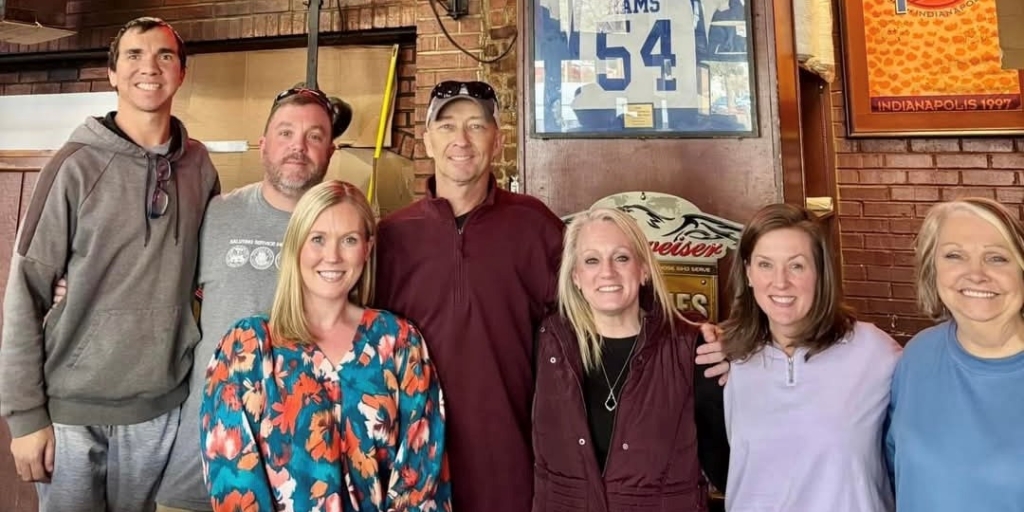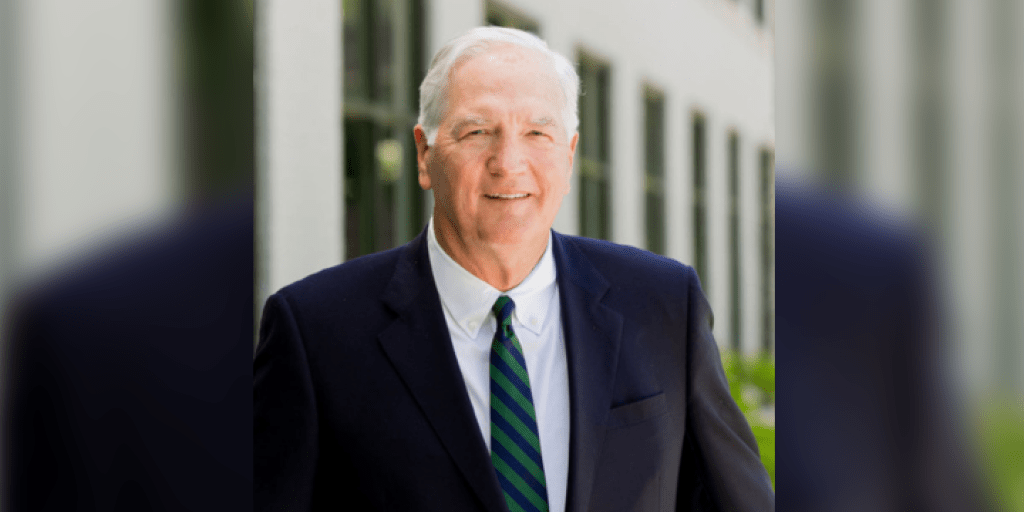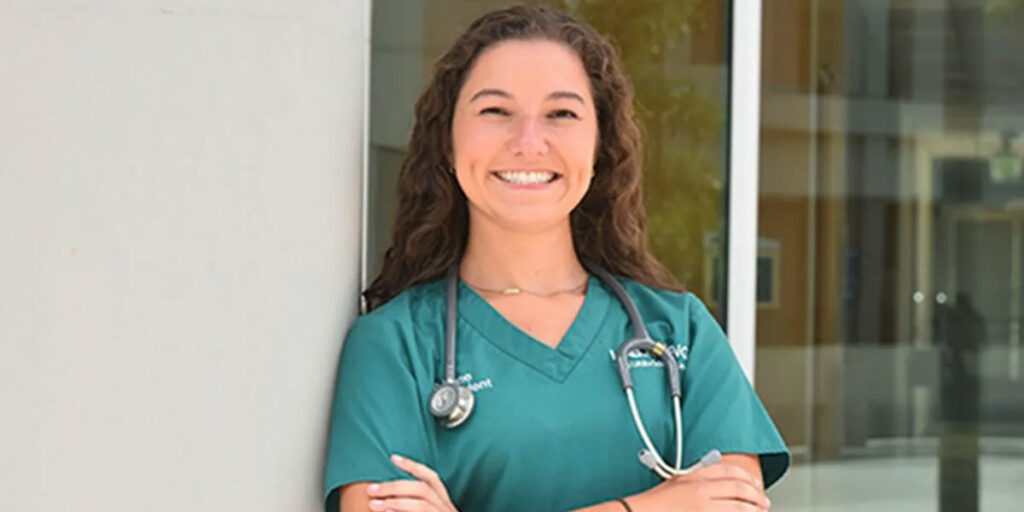For Dr. Matt Might, director of the Hugh Kaul Precision Medicine Institute at the University of Alabama at Birmingham, the future of medicine revolves around physicians harnessing information on a scale unimagined by patients today.
“Data is the greatest drug of the 21st century,” said Might, who discovered a rare genetic disorder affecting his young son. “In terms of impact, I don’t think any drug will outperform data in overall ability to improve and extend human life.”
Of course, doctors already rely on detailed patient information when making diagnoses and creating treatment plans. But tomorrow’s medicine, as envisioned by Might, elevates and expands the power of the information at their command.
By combining medical knowledge with computational analysis and new techniques such as genomic sequencing, physicians will be able to create customized, data-driven treatments for individual patients rather than follow protocols for attacking a certain disease.
“One of the key things to understand in precision medicine is that it is actually easier to treat a patient than a disease,” Might said. “When you are treating a disease you have to find something that works for every patient with that disease.
“If you’re treating a patient, you just have to find out what works for them. That can be very, very different.”
Powerful new tools
Might, who advised President Barack Obama on precision medicine and turned down Harvard and other suitors before coming to UAB in July 2017, believes these new tools will forever change the way physicians provide care once they are widely adopted.
Genetic testing is already helping unravel medical mysteries, especially when it comes to diagnosing rare diseases. But it will play a greater role in the future, when oncologists can routinely sequence the genome of a tumor to see if its mutations call for a specific medicine, Might said.
Already at UAB, doctors can examine a mental health patient’s DNA for clues about how he or she will respond to particular antidepressants, allowing them to rule out medications that would be less effective or cause side effects.
In addition, physicians will be able to tap into a bottomless well of knowledge. Might has collaborated with other researchers to develop an artificial intelligence agent called MediKanren that can search more than 25 million published papers for insights that can pinpoint new treatment options for puzzling medical conditions.
“Everything in medicine is changing as a consequence of the data available and the computational power to analyze that data. This is definitely a pivotal moment, a sea change moment. Medicine is not going to look the same in 10 years,” he said.
Despite his enthusiasm for precision medicine, Might never set out to become a leader in the field. In fact, at the time his voyage started, he was pursuing a career as a computer scientist, working on projects such as cybersecurity and programming languages for supercomputers.
He was also dad to a newborn son, Bertrand, born in December 2007.
The ‘diagnostic journey’
Bertrand was just 2 months old when Might first noticed a problem. His son’s movements were uncontrolled rather than circular and fluid, as they should have been. Four months later, Bertrand’s pediatrician agreed that something was wrong – he just didn’t know what it was.
At that moment, Might and his wife, Cristina, embarked on what he calls a “four-year diagnostic journey.” Over time, Bertrand’s problems multiplied. Full-blown seizures. Movement disorder. Developmental delay. And, strangely, he couldn’t cry tears.
Might was determined to solve the mystery. Eventually, Duke University scientists performed genetic sequencing on Bertrand and his parents to see if they could detect a mutation driving the youngster’s problems.
The results pointed to a malfunctioning NGLY-1 gene, which produces an enzyme needed to break down certain abnormal proteins as part of a recycling process in the body.
“Almost no one had heard of NGLY-1. It didn’t exist as a disease. It barely existed as a known gene. That gene had never been linked to human health in any way, shape or form,” Might said.
Thus, a rare genetic disorder known as NGLY-1 deficiency was discovered. Bertrand was “patient zero.” That meant doctors told Might there was little that could be done for his son until more patients with the condition were identified.
In 2012, Might published a blog post called “Hunting Down My Son’s Killer” that described Bertrand’s symptoms. It received widespread attention. Within weeks, patients began popping up all over the world, enabling research into the condition to begin.
At home, Might struggled with how to help his son.
Using his background as a computer scientist, he set up a computational analysis to identify compounds that might be useful to treat Bertrand’s condition. He quickly found 70, including 14 already approved by the FDA.
At one point, additional testing showed that Bertrand’s condition had triggered a deficiency of N-acetylglucosamine, a readily available glucose derivative. Might purchased some and, after testing it on himself, began giving it to his son.
Days later, Might noticed tears rolling down Bertrand’s face. For the first time, he had discovered a remedy to help his child. Critically, the tears halted the corneal erosion that threatened Bertrand with eventual blindness.
Other discoveries followed. Using MediKanren, Might learned that research indicated a common supplement, sulforaphane, could counter a certain molecular function triggered by NGLY-1 deficiency.
“Sulforaphane is abundant in broccoli, but not abundant enough. You’d need about 60 pounds of broccoli a day. Most fifth-graders don’t eat their own body weight in broccoli each day, but you can get it in a pill form that is highly concentrated. So he has been on that for about two months now, and for me, I think it is definitely making a difference.”
Might is now investigating whether some of the movement disorder aspects of Bertrand’s condition are similar to Parkinson’s and looking into whether treatments for that disease might benefit his son.
“I think, at last, we are moving on all fronts for Bertrand. We’re addressing seizures, eyes, movement disorders and development with this large cocktail of drugs we’ve assembled for his condition,” he said.
Creating an ‘algorithm’
Might is using the lessons he learned in his quest to help Bertrand to scale up the precision medicine initiative at UAB, using what he’s dubbed the “algorithm of precision medicine.”
At its core, the approach centers on harvesting every bit of data about a patient. Genomic sequencing is an important component because it provides a peek into the patient’s unique molecular makeup. But even information contained on a Fitbit or Apple watch can be part of the mix.
Computational technologies and deep reasoning tools such as MediKanren add a new dimension.
“We’re beginning to bring computation into medicine in a very serious way,” Might said. “Previously, it’s been largely used in a superficial way. Now we’re looking at it from more of a big data optimization perspective.”
At the Hugh Kaul Institute, made possible by a $7 million philanthropic gift in 2015, Might and his team maintain a focus on rare diseases through precision therapeutics, acting as what he calls a “clinic of last resort” for patients interested in engaging in targeted research to advance therapies for their disorders.
The institute, which has a staff of nearly a dozen, can provide physicians searching for treatment options with a research report containing recommendations personalized for an individual patient.
Precision oncology is a specific UAB focus. In one case, a genomic scan of a patient’s prostate tumor revealed mutations more consistent with ovarian cancer. Physicians were able to successfully treat the patient with medicines used to treat that form of cancer, Might said.
“Cancer is one of those things where precision medicine is the answer. Every cancer is unique,” he added. “You always need an individually tailored treatment. If you really want to treat cancer right, you’ve got to treat every cancer like a rare disease. That’s the key.”
Might sees the components of precision medicine flowing across all medical disciplines at UAB, expanding until its tactics become the standard of care for all patients.
“At UAB, we’re in the process of making everything precision medicine so that one day it won’t be precision medicine, it will just be medicine,” he said.
This story originally appeared on the University of Alabama System’s website.
Courtesy of Alabama Newscenter













